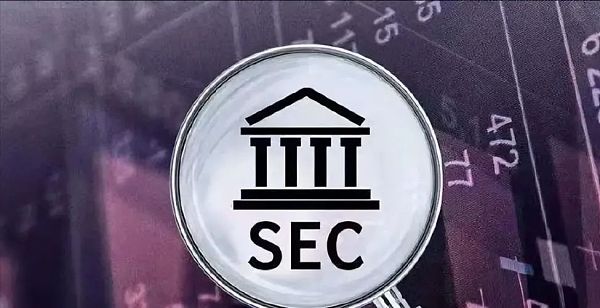Author: Lawyer Guo Zhihao
In recent years, with the rapid development of virtual currencies, various regions around the world have successively introduced different regulatory policies. Lawyer Guo’s team has collected relevant news briefs for everyone and organized them The series of articles "Global Policies on Virtual Currencies" will help you understand the regulatory attitudes towards virtual currencies in various regions around the world. You can read the previous content to check the policies of various countries before December 2022. This article updates the changes in virtual currency policies in various countries (including regions) around the world in 2023.
01 Hong Kong
1. On June 1, 2023, the Hong Kong Securities Regulatory Commission will implement the "Guidelines on Virtual Asset Trading Platforms" and "Guidelines on Combating Money Laundering" 》. Specifically, it is to introduce a licensing system for virtual asset service providers; by establishing an appropriate supervision and licensing system, we will eliminate the bad apples in the industry, which will help enhance the overall image of the industry and promote the healthy, orderly and responsible development of the virtual asset industry; and emphasize that Virtual asset trading platforms that have no intention of applying for a license should proceed to wind down their business in an orderly manner.
2. On December 22, 2023, the Hong Kong Securities Regulatory Commission issued two circulars, namely the "Circular on SFC-authorized funds investing in virtual assets" and "Related virtual assets related to intermediaries" Joint Circular on Activities”.

02 Singapore
1. On August 15, 2023, the Monetary Authority of Singapore (MAS) announced the final regulatory framework for stablecoins, which covers the issuers, reserve management, and Detailed regulations have been introduced in many aspects such as issuer qualification requirements, making Singapore one of the first jurisdictions in the world to incorporate stablecoins into the local regulatory system.
2. On November 28, 2023, Ravi Menon, Director of the Monetary Authority of Singapore (MAS), stated at the Hong Kong Monetary Authority-Bank for International Settlements high-level meeting that those who failed to pass the basic test of financial services Private cryptocurrencies will eventually retire, and the future monetary system will consist of three key components: CBDC, tokenized bank liabilities, and “well-regulated” stablecoins.

03 Dubai
1. On February 7, 2023, Dubai’s new virtual asset rulebook stated that crypto companies must obtain authorization and relevant licenses to operate in Dubai. This requirement requires authorization and related licenses for specific activities such as issuance, advisory, custody and exchange services.

04 Japan
1. On June 3, 2023, Japan’s “Amendment to the Fund Settlement Act” was voted by the House of Lords, making Japan the first country in the world to enact a stable currency bill.

05 South Korea
1. On June 30, 2023, the South Korean National Assembly Administrative Affairs Committee passed the "Virtual Asset User Protection Act", which is South Korea's first law and regulation targeting virtual assets (cryptocurrency). The purpose of this regulation is to protect the rights and interests of virtual asset users and establish sound cryptocurrency market regulations.
2. On September 18, 2023, the South Korean Financial Commission issued a regulatory explanation, stating that under certain circumstances, stable coins may be regarded as virtual assets, and emphasized that specific issues should be analyzed in detail.

06 United States
1. On July 26, 2023, the U.S. Congress passed the "Blockchain Regulatory Certainty Act" (Blockchain Regulatory Certainty Act). The importance of this bill is that it clarifies The legal status of virtual currencies and formally defines them as "any form of intangible personal property that can be possessed exclusively by an individual and transferred from person to person without the necessary reliance on an intermediary", also known as "digital assets", as such assets clear guiding principles for supervision. This not only provides consistency for domestic virtual currency regulation in the United States and eliminates the previously confusing regulatory environment, but may also have a positive impact on the definition and regulation of virtual currencies globally.

07 Europe
1. On April 20, 2023, EU lawmakers introduced new cryptocurrency regulations MiCA, becoming the first jurisdiction in the world to introduce comprehensive encryption regulations. Also finalizing is a separate law called the Funds Transfer Regulations, which would require cryptocurrency operators to identify their customers to stop money laundering.

08 UK
1. On July 28, 2023, the UK and Singapore have agreed to jointly develop and implement global regulatory standards for cryptocurrencies and digital assets as part of their ongoing financial dialogue and partnership . The two countries also discussed their respective attitudes towards CBDC. Both countries stressed the need for these attempts as members of international standard-setting bodies such as the International Organization of Securities Commissions and the Financial Stability Board. The UK and Singapore also agreed to continue dialogue and cooperation on cryptocurrency and digital asset regulation, as well as other areas such as sustainable finance, fintech and innovation.
2. On November 29, 2023, the British government on Wednesday called on cryptocurrency users to voluntarily disclose any unpaid capital gains tax or income tax to avoid penalties, and issued guidance on how to pay these taxes. .

09 Russia
1. On March 9, 2023, the Russian Ministry of Finance introduced a provision in the bill regulating cryptocurrency mining that would make it a crime to refuse to declare digital assets. The ministry's revisions to the Criminal Code indicate that if a miner evades declaring income exceeding 15 million rubles at least twice within three years, he could face up to two years in prison, as well as a fine of up to 300,000 rubles and up to two years of forced labor .
2. On August 21, 2023, the lower house of the Russian Federation Parliament passed the digital ruble or central bank digital currency (CBDC) bill on the third reading.

 TheBlock
TheBlock















